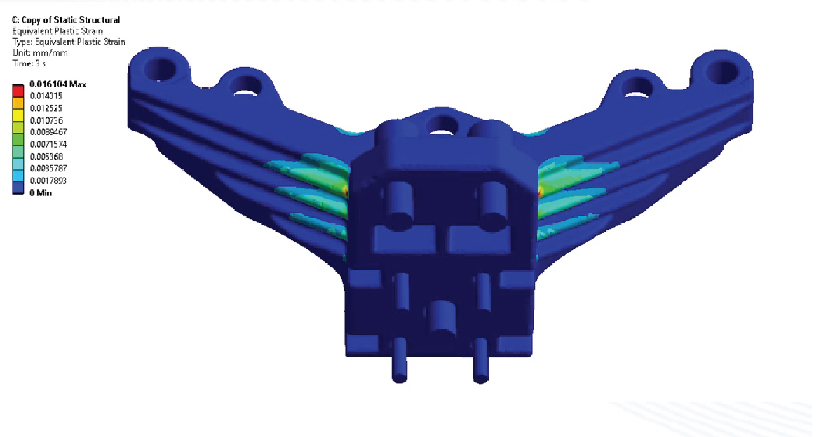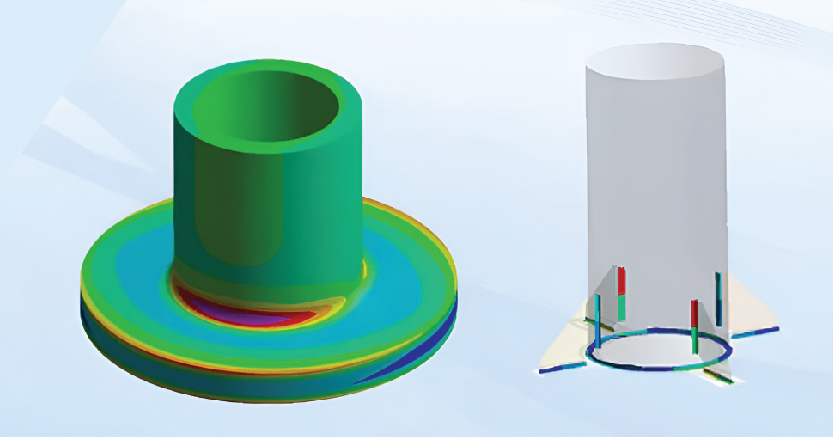The reduction of time for strength evaluations to a minimum, even for complex scenarios, involves optimizing simulation processes and leveraging advanced computational techniques. This can be achieved by using efficient meshing strategies, parallel processing, and automation tools to streamline the analysis of stress, fatigue, and deformation. Simplified yet accurate models, along with pre-defined material and load conditions, further expedite evaluations, allowing for faster results without compromising accuracy. These methods enable quicker decision-making in design and improve overall efficiency, particularly in scenarios involving complex geometries or multi-load conditions.


